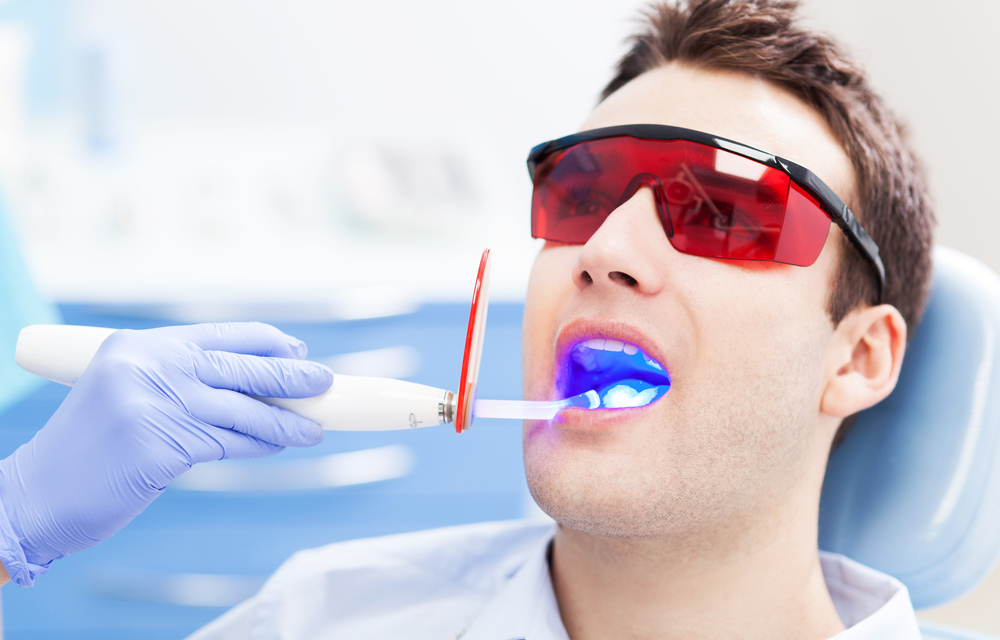Laser has become a popular tool in medicine that is used for surgery and other medical applications. However, the use of lasers for dental purposes has not become that popular and only some big cities with progressive dentists use laser dentistry in their practice.
Minnesota is one of the few big cities that offer this high-end technology in treating some dental problems like tooth decay, tooth sensitivity, gum and mouth disorders, and even teeth whitening. So if you wish to get some dental work done but don’t want to be treated using regular methods due to the discomfort they bring, perhaps you should consider laser dentistry in Minnesota.
What is Laser Dentistry?
Laser is called as it is because it is an acronym for light amplification by stimulated emission radiation, which is basically how laser is made. Laser is not a newcomer when it comes to its application in the medical field. It is, however, pretty new in the field of dentistry.
Laser has only been used for dental purposes since 1989. And although more and more dentists are open to using it for the treatment of some dental-related problems, the American Dental Association has not recognized its treatment and restorative applications yet. The Food and Drug Administration, though, has already approved it for use in dental practices.
Benefits of Laser Dentistry
1. More Comfortable
Everyone can agree that one of the worst things about traditional dental practices is the shrill, whirring sounds that often scare most kids, even adults. These sounds are often what make the experience uncomfortable. You don’t feel pain because of the anesthesia, but applying or injecting the anesthesia may also make you feel more uncomfortable.
But with laser dentistry, there are many reasons why it is more comfortable. For one, some dental procedures would not need anesthesia. Second, there is significantly less sound because treating the teeth won’t have to involve the drill so much. Overall, the use of laser makes your experience with dentists in Wayzata Dental or other local dental offices more comfortable.
2. Less Invasive
Using a laser for a dental procedure is one of the least invasive procedures you can ever have. Lasers minimize bleeding because wounds or incisions are smaller within the area of the procedure.
Traditional dental procedures are often more invasive because a lot of tools come into contact with your already sensitive gums. This can result in accidental wounds or cuts in the gums, as well as more bleeding.
Laser dentistry keeps the use of tools to a minimum as the laser does most of the work. When used properly, the laser can lessen the number of cuts or the need to make them.
3. Faster Healing
Laser dentistry also allows for faster healing in the area of the procedure because there are not many cuts or wounds resulting from the operation.
Wounds from procedures that require the reshaping of the gumline or the removal of certain abnormal growths like cysts will also heal faster because the laser would sanitize the wound, making them more minimal.
4. Less Chances of Infection
The mouth is one of the dirtiest parts of the body so when there is an open wound inside the mouth, it is most definitely prone to infection.
Laser dentistry procedures make you less prone to infection as wounds can be minimal. The laser also disinfects the wound and the surrounding area so bacteria wouldn’t thrive in that spot, lessing the chances of you getting an infection.
5. Versatile Tool
As mentioned previously, dentists who use traditional dental practices often use a lot of tools to perform different procedures. On the other hand, you won’t need as many tools when performing a dental procedure using a laser.
There are different types of laser tools that can be used for different types of dental procedures. But each type of these laser tools can be used for multiple types of procedures. For example, a hand-held diode laser can be used to perform procedures that are related to soft tissues in the mouth.
Conclusion
The use of high-end technology like a laser in dental practices has improved the experience of patients. Although traditional practices in the dental field are safe and proven to be effective, the benefits of laser dentistry outweigh them.
Whether from the point of view of the patients or the doctor, laser dentistry definitely elevates the practice of dentistry. Doctors worry less about the possibility of infection and they won’t need too many tools, making the procedure easier for dentists and patients alike.

